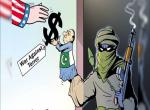Will the long-awaited National Counter Terrorism Centre (NCTC), which will come into existence on March 1, make a difference? Most commentators feel it won’t. They say it is nothing more than affixing a fanciful American label that had fascinated home minister P Chidambaram on the decade-old Multi- Agency Centre (MAC). They also wonder why it took him three years to set it up.
It is true that the NCTC will not be what the minister declared it would be when he addressed Intelligence Bureau (IB) officers on December 23, 2009. At that meeting, he had described it as an outfit capable of “preventing a terrorist attack, containing a terrorist attack should one take place, and responding to a terrorist attack by inflicting pain upon the perpetrators”. It is also true that in terms of its charter, authority, empowerment and resources, it cannot match its American namesake. However, it is certainly an improvement over what exists now. While the Indian centre has little in common with its US counterpart, their underlying doctrines have much in common. Of course, on matters of detail we have grossly missed out and the devil lies in the detail.
The MAC was created following the recommendations of the Group of Ministers, which was set up by the NDA in 2001 to suggest comprehensive reforms in India’s national security apparatus.
The outfit, headed by a part-time additional director in the IB, maintained a databank of terrorists and their collaborators, terrorist organisations, details of terrorist violence including their modus operandi, tactics, communication links, weapons and equipment used etc. The outfit had representatives from all central intelligence agencies, defence forces and central police organisations who were both contributors and beneficiaries of the all-source databank.
They met regularly to exchange and evaluate intelligence inputs, assess impending threats and worked out possible responses. The sharing of intelligence with MAC was, however, informal and unstructured, often leaving gaping holes. MAC did not collect intelligence or carry out intelligence operations. The NCTC, however, will be an integrated platform that will collect, evaluate and analyse intelligence, maintain a databank and coordinate counter-terrorist operations. Headed by a full time director, the NCTC will make sharing of intelligence and follow up operations efficient, faster and better coordinated.
The IB, despite being the nodal agency for counter terrorism, as a secret organisation was handicapped in several ways and had to play the role of an invisible hand ensuring that it did not cross the red lines. Their support in terms of providing intelligence, working out plans for physical action, covert operational and technical support etc was all informal. Often, operational intelligence and follow up plans, painstakingly developed at grave personal risks, were lost due to lack of professional expertise, sense of urgency, training, equipment, and even motivation of the local police. The IB could not intervene beyond a point. The NCTC, with powers accruing to it under section 43A of the Unlawful Activities Prevention Act (UAPA), 1967, to arrest anybody having a ‘design to commit’ or ‘having committed’ any act of terror, will be able to take preventive and proactive actions in real time on its own. Importantly, the law makes reliable intelligence “from personal knowledge or information given by any person” as the basis for undertaking such operations. The empowerment under UAPA should enable the NCTC to search and seize any ‘building’, ‘conveyance’ or ‘place’ that is suspected to have terrorist links and this will further enhance its effectiveness.
Further, the NCTC will have the powers to requisition the services of the NSG or any other special force for undertaking counter-terrorist operations. In effect, it means that should the NCTC have reliable intelligence, it can under its own empowerment, co-opt central forces to complement the local police and make up for their deficiencies in trained manpower, equipment, logistics etc.
Taking advantage of its nationwide jurisdiction, the information gathered by the NCTC during search operations or initial questioning of the suspects, can be used to mount supplementary operations in any part of the country taking help of the local police to meet legal requirements. It will set in motion the chain of counter-terrorist actions in real time. This is distinct from situations in the past when many opportunities were lost due to legal-jurisdictional problems, hassles in priming up police forces which were out of the loop, delays in tying up logistics etc. The best operational intelligence is obtained within two to three hours of a successful operation when terrorists are questioned, documents are recovered and mobile phones are seized. However, the shelf-life of all these is just a few hours before the information is flashed by the media. The NCTC will be able to substantially cover this gap.
The fears expressed in some quarters that the head of NCTC, being a relatively junior officer, will be unable to deliver are unfounded. The NCTC will have all the clout that it needs because the IB chief, the senior-most police officer, under whom the NCTC head will work, will be able intervene whenever required. However, in order to maximise the advantages of having a counter-terrorism centre of this kind, the government must opt for a dynamic and relatively young additional director who is poised for higher future responsibilities.
Notwithstanding the gaps, the NCTC has much to offer. Over a period of time, it will be necessary to empower it more. It must acquire statutory status through an act of Parliament. The home ministry should look for officers with professional competence and motivation to man the organisation. The counter-terrorist units of the states should be re-organised on the pattern of the NCTC to bring about uniformity and seamless integration in national counter-terrorism efforts. Needless to say, the Centre must bear the costs. But eventually much will have to be done by the NCTC and this includes enhancing its intelligence capabilities, injecting speed and surprise in its operations and establishing an R&D unit and upgrading the use of technology.
Published in Hindustan Times 12th February 2012









Post new comment